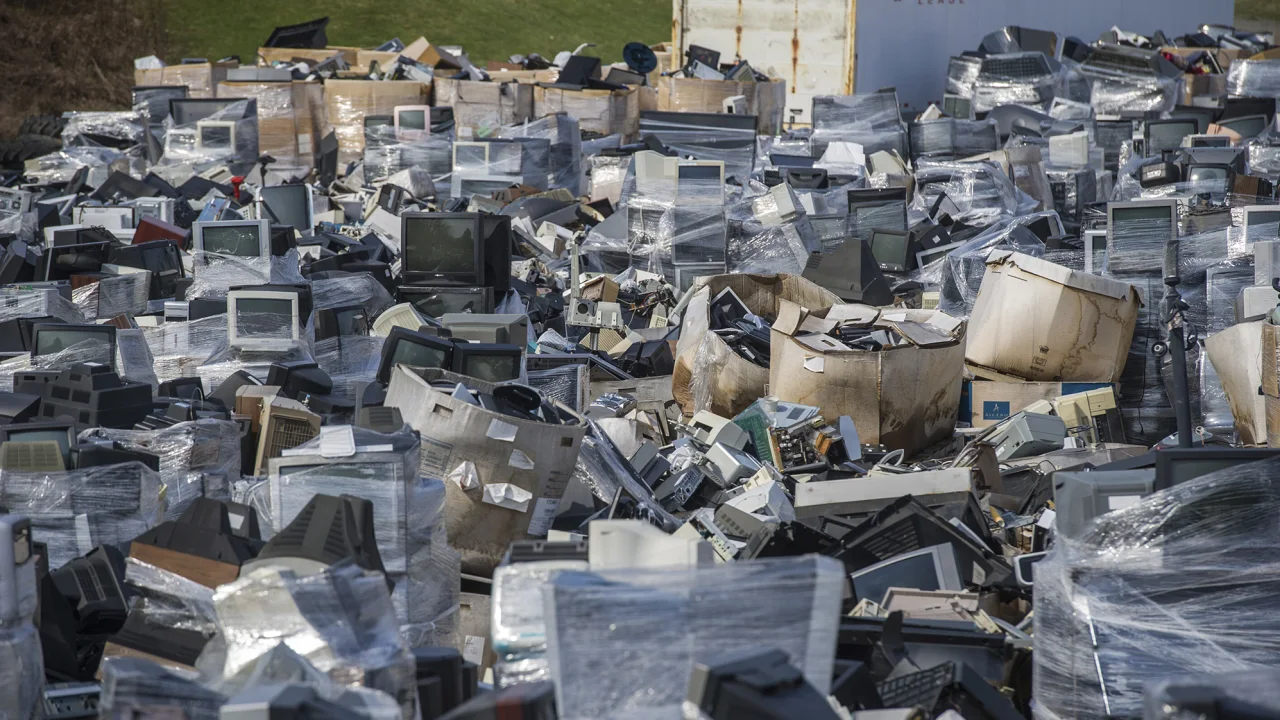
Save the Computers
Last Updated on October 3, 2025 by David Both
Engadget, is a company that claims on their web site, “…the latest technology news and expert tech product reviews. Learn about the latest gadgets and consumer tech products for entertainment, gaming, lifestyle and more.” They review tech products, including computers, and get paid when readers click through to view or purchase products they’ve reviewed.

Like many others they certainly drank the Koolaid because the article, “The best new computers to replace your old Windows 10 PC,” is essentially a blind regurgitation of the M$ line. The M$ stand of, “If your old computer won’t run Win11, throw it away and buy a new one,” consigns over 400,000,000 — yes, 400 Million — computers to recycling streams, landfills, or worse, just being dumped somewhere. And only 17% of all e-waste is recycled. So that’s not a pretty picture. And — every one of those computers is still perfectly good and useful.
Imagine what you would say if your auto dealer or repair shop said, “Your car is perfectly good, but it won’t run as good as this new one so we’ve scrapped your old car and you now have to buy this new one.”
Think about that for a moment.
Fixing broken computers is far less expensive and much better for the environment than discarding them and purchasing new ones. Sustainability is an increasingly important problem in computing. Reduce, reuse, and recycle is a famous motto for environmentally responsible consumption, but applying it to computer hardware can be challenging.
Proprietary operating systems like Windows force a hardware upgrades on you long before your old hardware is used up. If you own a computer with Windows, you’ve probably been forced to purchase a new one to upgrade because your old one didn’t meet the hardware requirements of the latest OS. Apple doesn’t do any better.
Save the computers
Computers aren’t as cute as say, baby seals or kittens, but it’s just as important to save the computers. There are three ways to save those perfectly good computers that the tech companies, who have a vested interest in selling new computers, don’t want you to know.
Install Linux
Linux can save old computers.
The Linux advantage is that it is free and open source. With a few notable exceptions, most Linux distributions are free of charge and not the product of a large technology company with profit in mind. Even businesses that offer Linux products know that profitability doesn’t lie in selling software and forcing updates but in stellar support of what their customers are trying to do with that software. Simply put, Linux is the best bet for a sustainable operating system.
For many reasons, installing Linux on your computer is a much better option than any others. I won’t subject you to all those details here, but we’ve published many articles about moving to Linux on this site. You can find many of them in this list.
Donate your perfectly good computer
There are some excellent places you can safely donate your old computers where they’ll be refurbished and reused, but there are still few of them. Considering the stupid and arbitrary hardware restrictions M$ has placed on Win11, I expect that most of those computers will be locked out of Win11 and so will be installed with Linux instead.
Be sure to search for places close to your geographical location. I know about two at the moment. Please let us know if you are aware of any others. You can leave a comment, or email us at open@both.org.
Kramden Institute
Kramden Institute is a non-profit organization in Durham, NC, which started as a father and son project in June 2003 by Mark and Ned Dibner (“Kramden” is ‘Mark’ and ‘Ned’ spelled backwards). The idea came from Ned, then 13, who suggested to his father that they refurbish and fix older computers to donate to middle school honor-roll students in Durham, NC who could not afford home computers.
Kramden Institute’s mission is to provide technology tools and training to bridge the digital divide. Since 2003, Kramden has awarded more than 48,000 computers to deserving families across North Carolina and beyond.
Kramden expanded its programs in 2014 to include educational programs for members of the community who lack basic computing skills. Since that time, over 9,000 individuals have completed one of their adult computer classes, taken part in STEM after-school programs, or enrolled in a workshop or technology camp.
Kramden typically installs their own Linux distro or a crippled, older version of WIndows on their computers. All computers intended for children get Linux, while adults can choose.
Free Geek
Free Geek launched on Earth Day 2000 as part of a community-wide public event at Pioneer Courthouse Square in downtown Portland, Oregon, then in September of that year they opened the doors to their facility on Southeast 10th Avenue as a recycling/reuse drop off for electronic waste salvaging technology from the waste stream before it made its way into landfills. Over the years, They’ve added new Digital Inclusion programming to support education, free technology access, digital literacy, and workforce development shifting the focus and the way they define themselves as an organization; though reuse and recycling programs form the backbone of their work, by providing them with the refurbished devices they’re able to put back into the community, their core goal is to function as a service provider whose offerings help narrow the digital divide.
Recycle it at a certified facility
This is another good option if you can find a certified facility near you. Both R2 and e-Stewards® certifications have been awarded to many facilities here in the U.S. and around the world. You can search for facilities near you on their web sites. These certifications ensure that the recycling is performed as sustainably as possible.
Summary
The best option for older computers that don’t meet the requirements for Win11, is to keep then and install Linux. This allows you to keep your old computer, this reducing the demand for new computers and all the raw materials and energy that are used in creating them.
The second best option is to donate older computers directly to a facility that refurbishes and provides them at low or no cost to people who have no other options for access to computing power. Most will provide drop-off or pickup computers directly from your office or residence.
The last of these options is to take them to a certified recycling center. However, this is almost as good as taking them directly to a place like Kramden or Free Geek.
Resources
Articles on Both.org
We’ve published a number articles on this site about using Linux and reclaimed parts to restore older computers. Rather than reproduce all of that here, you can use the following links.
- E-Waste – Where does it go?
- Why I Save Old Computer Parts
- Saving Another Computer with Linux
- Saving Old Computers – and the planet
- How Linux rescues slow computers (and the planet)
- Your computer isn’t broken – it just needs Linux
- As many as 400,000,000 Windows 10 PCs can’t be upgraded to Windows 11
- Linux: The Sustainable Choice for Computing and Environmental Responsibility
External articles
- Mearian, Lucas, More than half of PCs can’t upgrade to Windows 11 — report, Computer World, 04/13/2022
- Tung, Liam, A surprising number of PCs can’t upgrade to Windows 11. Here’s why, ZDNet, 10/12/2022
- Vaughan-Nichols, Steven, 5 ways to save your Windows 10 PC in 2025 – and most are free, ZDNet, 06/04/2024